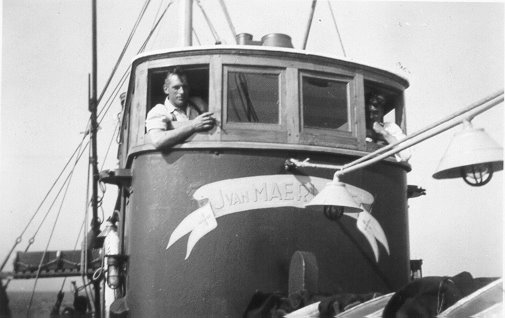
 The cover of the first VLIZ magazine, published in 1999.
The cover of the first VLIZ magazine, published in 1999.
VLIZ: Pioneering Marine Data as Blue Gold
Since its founding, the Flanders Marine Institute (VLIZ) has treated marine data as a vital resource—what it calls the “new blue gold.” From the very beginning, VLIZ has committed to open access and high-quality data management, embracing FAIR principles (Findable, Accessible, Interoperable, Reusable) well before they became standard practice. This foresight helped VLIZ become a leading player in the global marine data landscape.
Foundations and Key Developments
One of the earliest milestones in VLIZ’s data journey was the launch of the Integrated Marine Information System (IMIS) in 2000. This platform linked researchers, institutes, publications, projects, and datasets into a unified system. In 2005, the Open Marine Archive (OMA) was introduced to digitize and make accessible a vast library of marine literature. These systems quickly became indispensable tools for the marine science community.
Participation in European research initiatives, such as the MarBEF project, further boosted VLIZ’s profile. This led to the creation of key databases like the World Register of Marine Species (WoRMS) and Marine Regions (formerly VLIMAR Gazetteer). Support from the Flemish government and engagement with ESFRI infrastructures enabled VLIZ to expand its data services significantly.
The OMES programme, running since 1995, was another landmark. It systematically monitors water quality, quantity, and biodiversity in the Scheldt estuary. Data from this and other initiatives were later integrated into the ScheldeMonitor portal, launched in 2004 to support cross-border environmental policy.
A Hub for Global Marine Data
VLIZ’s expertise attracted international institutions to its headquarters. In 2005, the UNESCO-IOC’s IODE Project Office relocated to VLIZ, followed by the Ocean Teacher Global Academy (OTGA) and the European node of the Ocean Biodiversity Information System (OBIS). By 2013, VLIZ also became home to the secretariat of the European Marine Observation and Data Network (EMODnet), where it developed the main portal giving users access to a wide array of marine data types.
Broadening of Scope and Capabilities
Though VLIZ began with a focus on biodiversity data, its scope has since expanded to include abiotic data, greenhouse gas monitoring, and more. A key initiative in 2002 involved measuring abiotic variables in the Belgian part of the North Sea. Following the 2004 tsunami, VLIZ collaborated with GLOSS to launch a global web portal for sea level monitoring.
The integration of large-scale infrastructures such as LifeWatch and ICOS in 2012 brought in biotic data and greenhouse gas measurements. Alongside this, thematic portals like 4DEMON and CREST were developed to support more specialized data access and visualization.
Internally, VLIZ expanded into areas like data archaeology through projects like HisGisKust, which digitizes historical maps, and citizen science via platforms such as SeaWatch-B and CoastSnap. The establishment of the Marine Observation Centre and the Marine Robotics Centre in 2018 marked a sharp rise in the volume and variety of data being generated.
Services, Reach, and Impact
VLIZ serves a diverse audience of scientists, policymakers, and businesses worldwide. Its services go beyond data hosting: it also offers archiving, validation, publication, DOI generation, and a helpdesk that provides customized data support. These services are implemented across more than 40 active projects.
Its systems are supported by contributions from global databases (e.g., WoRMS, EurOBIS) and VLIZ’s own initiatives like Marine Regions. Thanks to these partnerships, VLIZ has become a key enabler of international data sharing and knowledge exchange.
Training and knowledge dissemination are also core components. VLIZ collaborates with global initiatives such as OTGA, EMODnet, ICOS, and EMBRC to conduct data literacy and technical training. All of its 39 international collaboration agreements include data-sharing components, 13 of which were developed through work on WoRMS.
Looking Ahead
VLIZ’s work has been recognized by the OECD as a model for open marine data provision. The return on investment in marine data infrastructure in Flanders has been substantial, fueling value chains that extend far beyond the initial purpose of the data collection.
The future of marine data at VLIZ is centered on diversification and innovation. Applications in offshore safety and defense, the use of artificial intelligence and machine learning, and development of interconnected systems such as the European Digital Twin Ocean are key priorities. On a regional scale, VLIZ contributes to the Flemish Smart Data Space through the MAREGRAPH project.
Belgium’s well-instrumented and densely monitored marine environment makes it a perfect testing ground for interdisciplinary data integration. VLIZ continues to turn its “blue gold” into a global resource for knowledge, innovation, and sustainable development.

